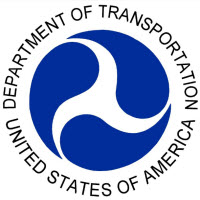US DOT Holds Airlines to Account On Foreign Airports Disability Standards
- Written by Roberto Castiglioni
 Airlines will be hold to account when international airports do not meet disability standards of service required under US Equality law, the US DOT said.
Airlines will be hold to account when international airports do not meet disability standards of service required under US Equality law, the US DOT said.
European and U.S. air travel equality laws differ significantly. In recent times, questions have been raised about the scope of applicability and the conflict between regulations.
In this exclusive interview with Reduced Mobility Rights, a spokesperson for the U.S. Department of Transportation’s Aviation Consumer Protection Division gives the American interpretation of the scope of applicability of the law.
The latest analysis of territoriality the DOT provided states that the applicability of 14 CFR Part 382 begins at the airport. However, in Europe, airports fall under the covenants of (EC)1107/2006.
Part 382.9 states that foreign airlines who believe that an applicable provision of the law of a foreign nation precludes them from complying with a provision of this part, them may request a waiver of the provision of this Part.
Based on the conflict of applicability between US and EU rules we asked the DOT if airlines may request a waiver on the applicability of 14 CFR Part 382 on the grounds that (EC)1107/2006 supersedes its American counterpart on European soil, therefore remanding applicability of 14 CFR Part 382 to the point where the passenger physically board the U.S. aircraft, and in the opposite direction, applicability of Part 382 ends as the passenger physically deplanes (steps out of the aircraft).
“Foreign air carriers are covered with Part 382 with respect to flights they operate that begin or end at a U.S. airport. This is not limited to services provided on aircraft but also includes, among other things, accessibility of airport facilities that carriers own, lease, or control at a foreign airport,” the DOT spokesperson said. “Carriers cannot waive the applicability of Part 382 on grounds that EC 1107 supersedes on European soil. In certain instances, both EC 1107 and Part 382 may apply. However, if a provision in EC 1107 conflicts with a provision in Part 382, then the European carrier could apply to DOT for a conflict of law waiver. If DOT agrees that there is a conflict then the carrier can follow the EC 1107 provision rather than the conflicting provision of Part 382.”
However, the U.S. Department of Transportation denied requests filed after European air travel Equality law came into force.
“Shortly after the issuance of the Department’s disability regulation in 2008, the Department received conflict of law requests from its requirement that airlines be responsible for providing enplaning and deplaning assistance to passengers with disabilities,” the DOT spokeswoman said. “ The requests claimed the provisions of EC 1107 require the airport managing body (not the airline) to provide assistance to a person with a reduced mobility in boarding and deplaning flights. In denying these requests, the Department explained that Part 382 requires airlines to supplement services provided by the airport operators if they do not meet the high standard of service required under Part 382. Part 382 does not prohibit an airline from relying on relevant services provided by an airport operator, but those services must meet the standards of Part 382.”
What does this mean for passengers with disabilities traveling to and from the United States for third countries? The Aviation Consumer Protection Division is not shy enforcing air travel equality law, which means airlines are keener to comply with US law than any other disability focused regulation.
Passengers traveling from and to the United States from any country around the world can expect to receive first class support from the onset of their journey.
At the beginning of November, the DOT fined US Airways $ 1.2 Million for not providing wheelchair assistance to passengers with disabilities. In February 2011, the US Department of Transportation fined Atlanta based Delta Air Lines $2,000,000 for violating rules protecting passengers with disabilities.
Tight enforcement raises assistance standards and delivers better care for passengers with disabilities. The US DOT received 10.8 percent fewer disability discrimination complaints in the first nine months of 2013 than in the same period in 2012.
The five top offenders among U.S. carriers in the first nine months of 2013 are United Airlines with 85 disability related complaints, American Airlines with 75, US Airways with 82, Delta Air Lines with 49, and Southwest Airlines with 33.
The five top offenders among non US airlines are Air Canada with 13 disabled passengers' complaints, British Airways with 12, Air France with 9, Emirates Airlines with 6, and Lufthansa with 5 disability related complaints.










